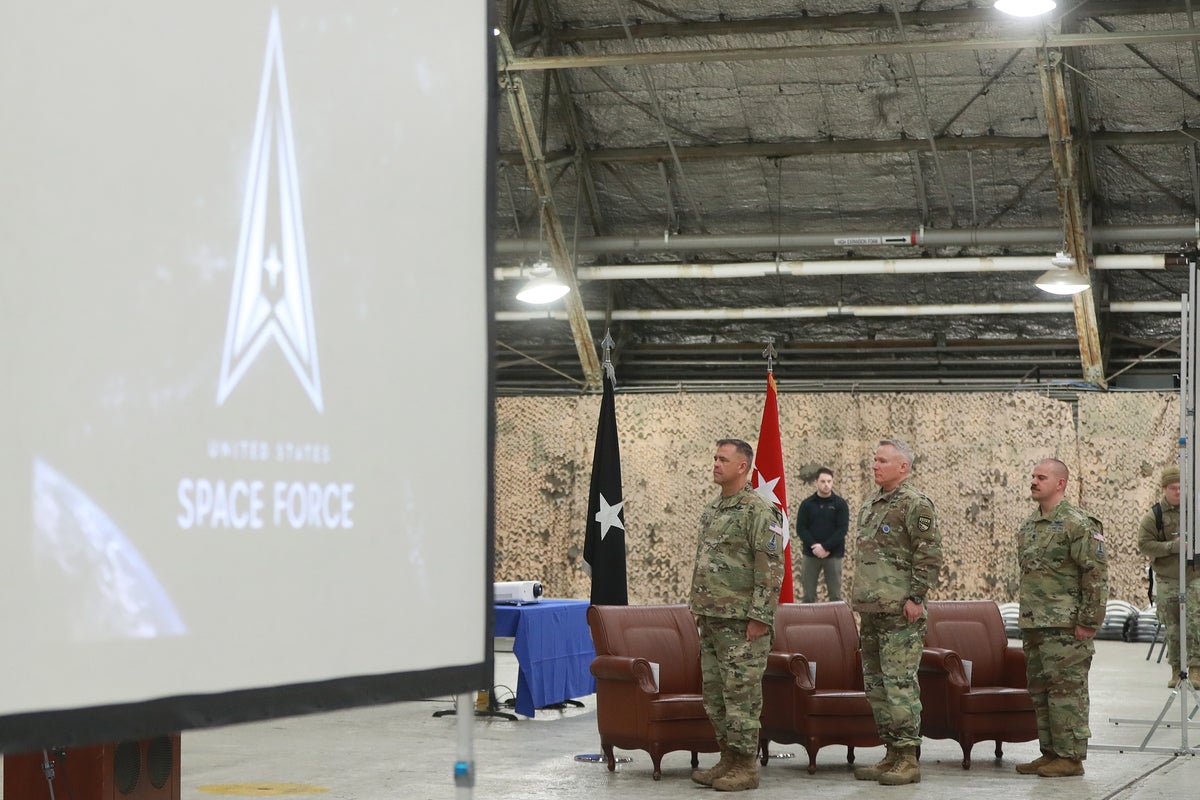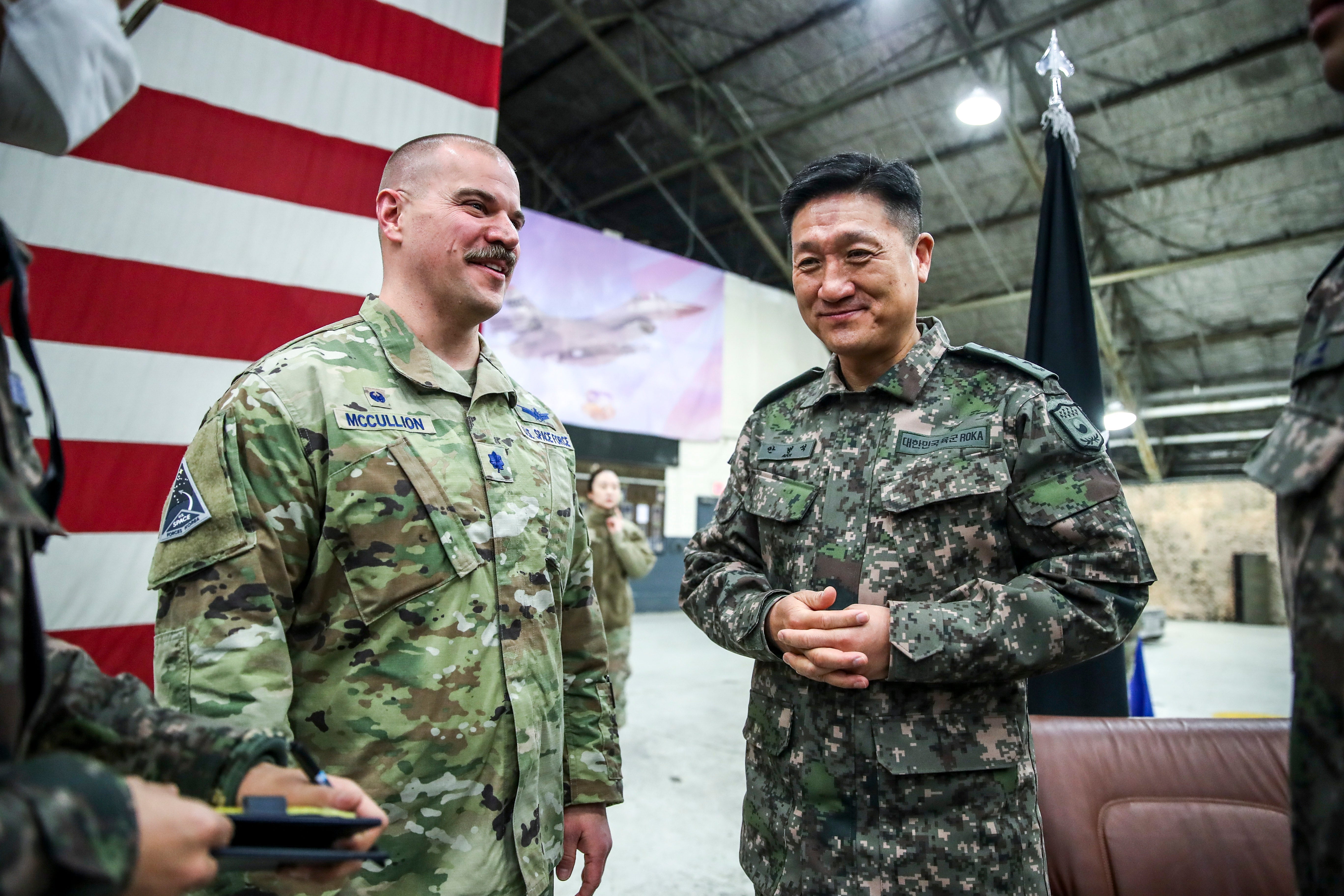
The arm of the US military dedicated to space has launched its first foreign command in South Korea, a move that is widely seen as Washington’s efforts to monitor its rivals North Korea, China and Russia.
The US Space Force unit, which is the first of its kind outside American soil, was activated in a ceremony at Osan Air Base, 40 miles (65km) south of Seoul.
The Space Force is the newest branch of the military in more than seven decades launched in December 2019 under then-president Donald Trump.
During the activation ceremony, the chief of the new space unit Lt Col Joshua McCullion suggested that the unit will help prepare and defend against regional threats, including from North Korea, which is just 48 miles north of the facility.
“Just 48 miles north of us exists an existential threat; a threat that we must be prepared to deter, defend against, and - if required - defeat,” he said in Osan, without directly referring to Pyongyang.
The move is expected to flare up fresh tensions with North Korea which has conducted a record number of missile tests this year. It also test-fired a barrage of nuclear-capable missiles that can strike the US mainland and its allies in South Korea as well as Japan.
It also comes as the US and South Korea expanded their partnership and are conducting regular military drills to bolster their defence capabilities in the face of North Korea’s threats and advancing nuclear programme.
The US military had warned the North that the use of nuclear weapons “will result in the end of that regime” as Pyongyang appears ready to conduct its seventh test.

Lt Col McCullion acknowledged that the US Space Force, whose members are called “guardians”, has become an object of satire in the media for its emblem’s similarity to Star Trek.
According to the US military in South Korea, one of the main mission areas that the space unit will focus on is “missile warning operations, which provides in-theater near-real-time detection and warning of ballistic missile launches”.
It will also coordinate space operations and services such as position navigation and timing, and satellite communications within the region.
General Paul LaCamera, commander of the 28,500 US troops in South Korea, said the activation of the facility will enhance Washington’s ability to defend the homelands and ensure peace and security on the Korean peninsula and in Northeast Asia.
“The US military is faster, better connected, more informed, precise and lethal because of space,” he said.
The US Space Forces Korea is a subordinate of a bigger US Space Force unit established within the Indo-Pacific command in Hawaii last month.
Jung Chang Wook, head of the Korea Defense Study Forum think tank in Seoul, said the Korea unit would work like a field unit while the other one in the Indo-Pacific Command would be its headquarters.
“The US Space Forces Korea would maintain, operate and assess related equipment. Simply speaking, I would say the actual US space operations will be done at Osan Air Base,” Mr Jung said.
He said the facility will work by receiving, processing and analysing tremendous amounts of data and information transmitted by US satellites.







